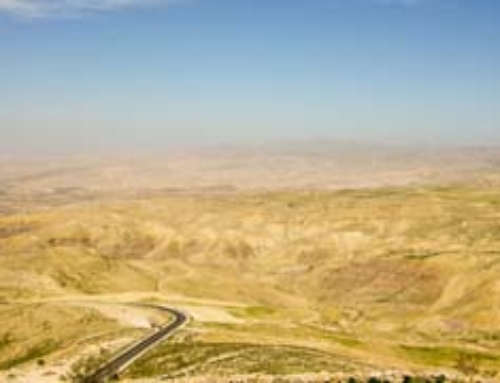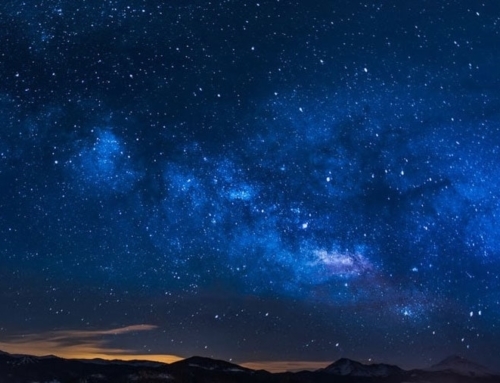By: Muhammad Ammar Mustafa
How Science and Religion Intersect in the Study of the Universe
The universe as we know it today is one of the greatest mysteries of science. Its sheer vastness makes it impossible to explore thoroughly and the presence of dark matter and dark energy keep 95.1% of the universe hidden from us. Therefore, the universe that we see and understand so far is only about 4.9% of the entire picture.[1]
Nonetheless, we have come a long way in understanding the universe and have recently made some great discoveries. The methodology to do so, to understand the life of the universe, its beginning, growth and end, is twofold. The first method is utilizing science, where observations, theories and experiments are central. The second is relying on religion, which utilizes faith and revelation. Both are often considered to be incompatible as scientific theories need proof whereas religious beliefs need only faith.
The Quran’s Scientific Miracles: Evidence of Its Divine Origins
However, out of all the world religions, Islam complements science the most, contrary to popular belief. In fact, science strengthens faith as far as Islam is concerned. For instance, the Quran contains scientific knowledge that was not discovered by science until recently, a clear proof of its divine origins.
In the case of Physics, the Quran mentions the Big Bang theory and the expansion of the universe, among other facts. These were not scientifically proven or discovered until the previous century, nearly 1400 years after the Quran was revealed.
In 1929, a scientist named Hubble made a startling discovery. He noticed that light coming from other galaxies was red shifted. This means that the frequency observed by Hubble was less than the actually frequency with which the light was being emitted from the galaxy. According to the Doppler Effect, which is the observed vs the actual frequency of a wave emitted from a source moving relative to a person (like a siren on an ambulance approaching and then going far), it meant that the galaxy was moving away from earth.
This led to the theory that everything in the universe is moving away from each other, consequently expanding the universe in size. This discovery was made possible through the use of powerful telescopes and other equipment. This equipment was not present during the time the Quran was revealed in the 7th century. Still the Quran accurately stated this scientific fact in the following verse, “The heaven, we have built it with power. Verily, We are expanding it” (51:47). [Click here to read more about the miracles of the Quran.]
Heaven here refers to the sky and by extension the entire universe. The word expanding is clear. God is saying that He created the heaven and sky and is expanding it, as discovered by Hubble almost 1400 years later.
Can a book which was revealed in the 7th century come to solve and advise communities till now in the 21st century? Answered by Imam Abdool Rahman Khan and Dr. Ingrid Mattson.
The Big Bang Theory
Consider the Big Bang theory, perhaps the biggest controversy in the science verses religion debate. This theory is a direct consequence of the expansion of the universe. If the universe is expanding as we know it, then if you turn back the clock, it will keep contracting until the universe was just a single point. In physics that point is known as the singularity, an object of extremely high density. The theory states that the entire universe came from this point when it exploded (big bang) and split into numerous pieces. These pieces then formed all the stars, planets, etc.
Many religious people do not believe in this theory because they say it contradicts the fact that God created the universe and also science has not been able to determine where exactly the singularity came from. Islam brings these two together. Yes, God created the universe, but He did it through the Big Bang. The Quran says, “…the heavens and the earth were a joined entity, and We separated them and made from water every living thing” (21:30).
Here “joined entity” refers to the singularity and the separation refers to the Big Bang. The part about every living thing being made from water is also scientifically accurate as we know today. This is a clear indication of the Big Bang, given 1400 years before modern science determined how the universe began. Again, this is proof of the Quran’s divinity as in the 7th century no one could have even guessed as to how the universe was born.
Planets and Stars
Every planet and moon in our solar system has an orbit. That orbit can be approximated as a circle centered on the sun. However the sun does not remain stationary; it also has an orbit. It revolves around the Milky Way galaxy just like the earth revolves around the sun. So in fact our entire solar system is orbiting the Milky Way. It takes more than 200 million years for the sun to compete an orbit of the galaxy.
The orbit of the sun was discovered in the 17th or 18th century when scientists realized that the Milky Way was like a spinning disk. Amazingly, the Quran stated this fact 1000 years before science discovered it. God says in it, “And it is He who created the night and the day and the sun and the moon; all in an orbit are swimming” (21:33).
This verse clearly indicated that the sun and the moon each travel in their own orbits, as we know today. Again it was not possible in the 7th century for humans to make this discovery. The only explanation is that it was a divine revelation.
Quranic Description of Star and Planet Formation Matches Modern Science
Lastly, consider the formation of stars and planets. Stars are formed in nebulas, and start off as a cloud of gases. The process begins when the cloud starts to collapse on itself when it becomes unstable and there is an imbalance of forces. The material in the center becomes incredibly hot and dense and this is the part that eventually becomes the star itself. Planets and solar systems are formed from the leftover material from a star. The remaining dust from the creation of a star clumps together because of gravity. These clumps revolve around the star at high speeds and collide with each other, forming even bigger clumps. Eventually after undergoing many collisions they turn into planets.
Planets are either rocky or gaseous depending on how far they were formed from the star. So the basic idea is that both stars and planets start off as gases and after some processes become celestial objects. This fact was mentioned in the Quran 1400 years ago in the following verse: “Then He directed Himself to the heaven while it was smoke and said to it and to the earth, ‘Come [into being], willingly or by compulsion.’ They said, ‘We have come willingly’” (41:11). The word “smoke” refers to the gaseous clouds from which stars and planets form.
Islam’s Position on Science
After reading all these verses about astronomy, it is important to understand why they are there. God included them for many reasons, two of which are as follows. First off, they serve as a sign of the Quran’s authenticity as a book revealed by the All-Knowing Creator. Each is an undeniable proof that the Quran is indeed the word of God and not made up by a man’s imagination. No man in the Arabian Peninsula in the 7th century – or anywhere else in the world, for that matter – could have made these accurate statements.
Secondly, these verses serve as inspiration for those that ponder upon them. Islam is not a religion that condemns science and worldly knowledge. Rather it encourages mankind to delve into these topics. The Abbasid dynasty is proof of this as so much advancement in Mathematics and Science were made by the scientists of that era. One example is the development of Algebra by Al-Khwarzimi. Without it, most, if not all, science would still be unknown to us. The Quran gave small doses of information about the universe and left the rest for humans to discover on their own. Therefore it is a source of motivation to unlock the secrets of the universe and also to impart curiosity in man. [Read more about Muslim scholars.]
Islam’s Approach to Science: How the Quran Encourages Learning and Discovery
Asking questions is not forbidden in Islam; rather it is encouraged as one should be very clear about his or her belief. Furthermore the first word of the Quran to be revealed was “Read” (96:1). Reading is attributed to acquiring knowledge; hence, from the very beginning, Islam called for humans to improve their learning through education.
Science and Islam are not at odds, rather they complement each other. Islam does say that God created the universe, but He did so through a process, a bit of which was described in the Quran and the rest was left for man to uncover on his own.
There are many other scientific miracles in the Quran, such as the development of an embryo in the womb. All of which serve as signs and inspiration to men of understanding. The Quran says:
“Verily in the creation of the heavens and the earth, and the alternation of night and day – there are indeed signs for men of understanding; Men who remember Allah, standing, sitting, and lying down on their sides, and contemplate the creation of the heavens and the earth (with the thought): ‘Our Lord! Not for nothing have You created (all) this’” (3:190).
Contemplating about the world and everything in it is an integral part of Islam. Muslims are encouraged to delve into the area of science and use it to increase their faith. In Islam, being ignorant of religion and also of the world are unacceptable and in order to be successful person, one must avoid both. Balance is imperative and going to either religious or secular extremes is forbidden. Islam is the complete religion. It calls for belief in the One God and the unseen, but also encourages man to uncover the mysteries of the universe and the earth.
[1] http://science.nasa.gov/astrophysics/focus-areas/what-is-dark-energy/
Got Questions?
We have Answers. Get in touch now.








